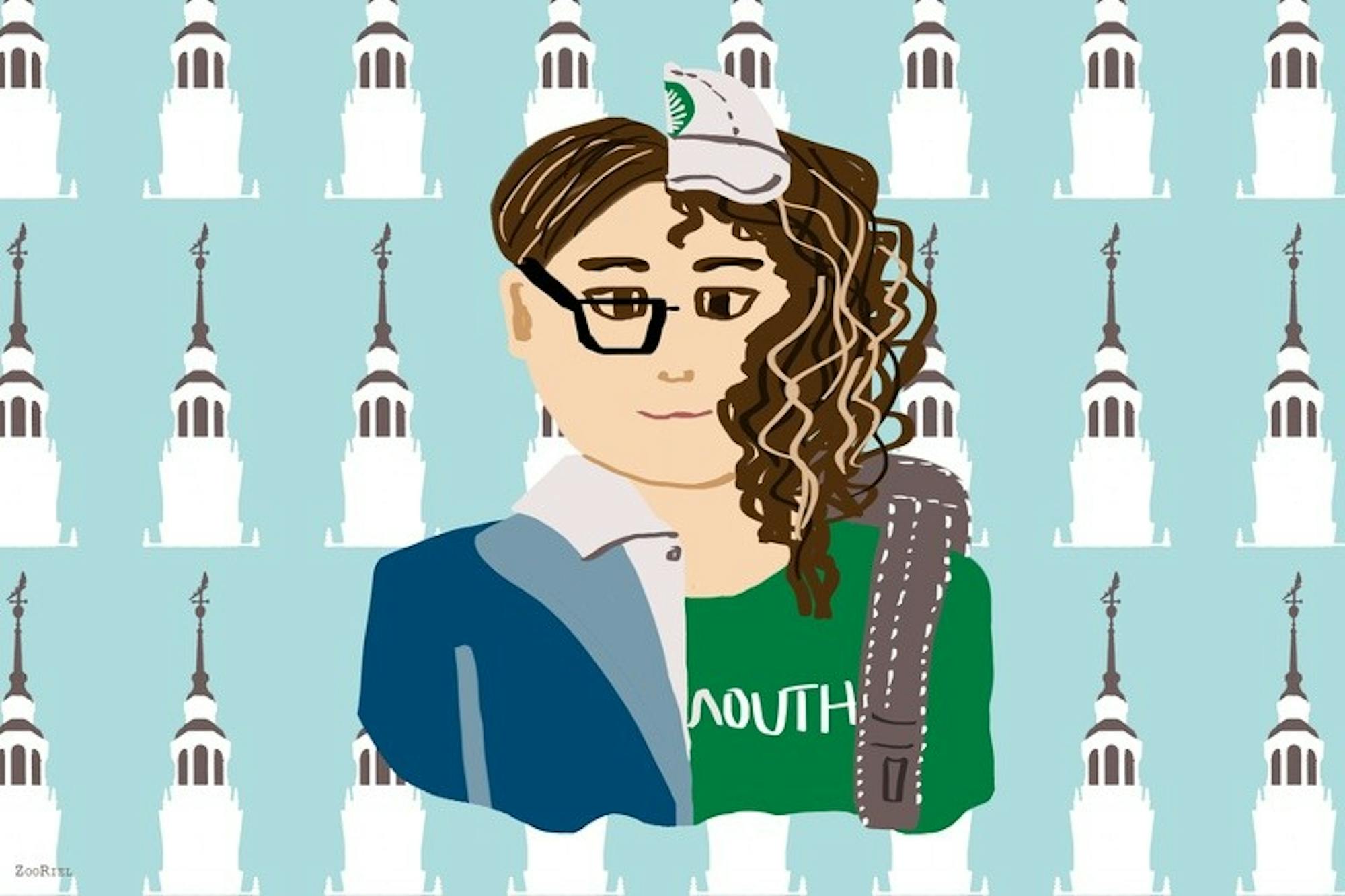Just under thirty years ago, Jason Barabas ’93 was a Dartmouth senior working on his honors thesis, playing on the football team and participating in the Greek system. Now, he is back in Hanover serving as the director of the Rockefeller Center for Public Policy and teaching in the government department. Barabas is part of Dartmouth’s substantial alumni-to-professor pipeline, made up of academics who return to teach at the College after completing their undergraduate degrees here. I sat down with four of these alumni professors to discuss how they have reconciled their experiences here as students with their current roles as faculty.
Barabas described his path back to the College as “circuitous.” After completing his doctorate in political science and holding faculty positions at various universities, Barabas found himself slowly gravitating toward public policy work. When a career opportunity opened up at the Rockefeller Center, he applied.
“I knew that there was an alignment of what the Rockefeller Center was doing, my lab [and] my most recent professional experience,” Barabas said. “So I was sort of moving in that direction, but again, over decades.”
Another alumna, Biology professor Celia Chen ’78, expressed that she retained an appreciation for the Upper Valley from her years as an undergraduate at the College. By the time she completed her doctorate in ecology in 1994, Chen already had a family that she did not want to uproot.
“I came to Dartmouth originally because I wanted to be in a place that was beautiful and forested and pristine, like these beautiful places,” Chen said. “So it wasn't really hard to want to decide to stay here after I finished my PhD, because I love this region.”
Religion professor Susan Ackerman ’80, on the other hand, expressed initial concerns about shifting to a faculty role at the same institution where she studied as an undergraduate. However, once Ackerman began working, she realized that these fears were unfounded — and her transition from student to faculty was relatively smooth.
“I wasn't sure it was going to be easy to all of a sudden switch from being my former professors’ student to being their colleague ... but, in fact, it was. They made it easy,” Ackerman said. “They never for a moment thought about me still as their student from day one.”
Though the professional transition was relatively painless, Ackerman noted that her body was not so quick to adjust, as her old undergraduate habits seemed to return subconsciously.
“At least for about the first few months, my physical body sort of got tricked back into thinking it was its undergraduate self,” Ackerman said. “When I was an undergraduate, I used to swim for exercise — and I would swim a mile every day in the pool in alumni gym. And so once I was back here, I walked over to the gym and got in the pool. I hadn't actually swum for a couple of years.”
Some of these professors utilize their past experiences as students to guide their teaching and mentorship. Chen, for one, explained how she felt her personal understanding of the strain that Dartmouth students are under has informed her teaching strategies.
“I have been an undergrad, you know, and I understand the pressures — and I understand the challenges of balancing, time management and that kind of thing. So I think that helps me in my teaching,” Chen said.
When anthropology professor Elizabeth Carpenter-Song ’01 was an undergraduate at Dartmouth, she noted that she had professors who mentored her and enabled her to conduct independent research. Those experiences were so transformative that in her teaching today, Carpenter-Song said she tries to emulate those characteristics of her former professors.
“As I think about those early experiences as an undergrad, and just the profound generosity of my professors — the time they would [spend] with me, the careful and thoughtful and rigorous feedback that they would give me — those are all things now that I try to model with my own students,” Carpenter-Song said. “I hope to live up to the legacy that I was gifted as a student.”
Barabas also felt that his time as a Dartmouth undergraduate gave him a good understanding of how to best advise and guide his students.
“It's very helpful to have been in the shoes of many Dartmouth students, albeit years ago,” Barabas said. “I have a sense of some of the pressures, challenges and also opportunities that [students] could take advantage of.”
While many things have remained consistent, some professors have directly experienced the effects of decades of institutional change. When Chen entered as a freshman in 1974, the College had only been coed for two years.
“The [male-to-female] ratio was something like 8:1 when I was an undergraduate student… It was hard to even go in the dining hall and find another female face,” Chen said.
She also commented on how much more diverse Dartmouth is now than it was when she was an undergraduate.
“It’s so refreshing, because you would hardly ever see a person of color during that time,” Chen said.
Nearly every professor I spoke with commented on Dartmouth being more accepting and diverse than when they first arrived on campus as students. Despite the years separating these professors from their lives as students, many still feel deeply connected to the campus community.
“I still get chills when I drive up Wheelock [street] each morning and I see the tower,” Barabas said. “You all will have that feeling one day too.”




